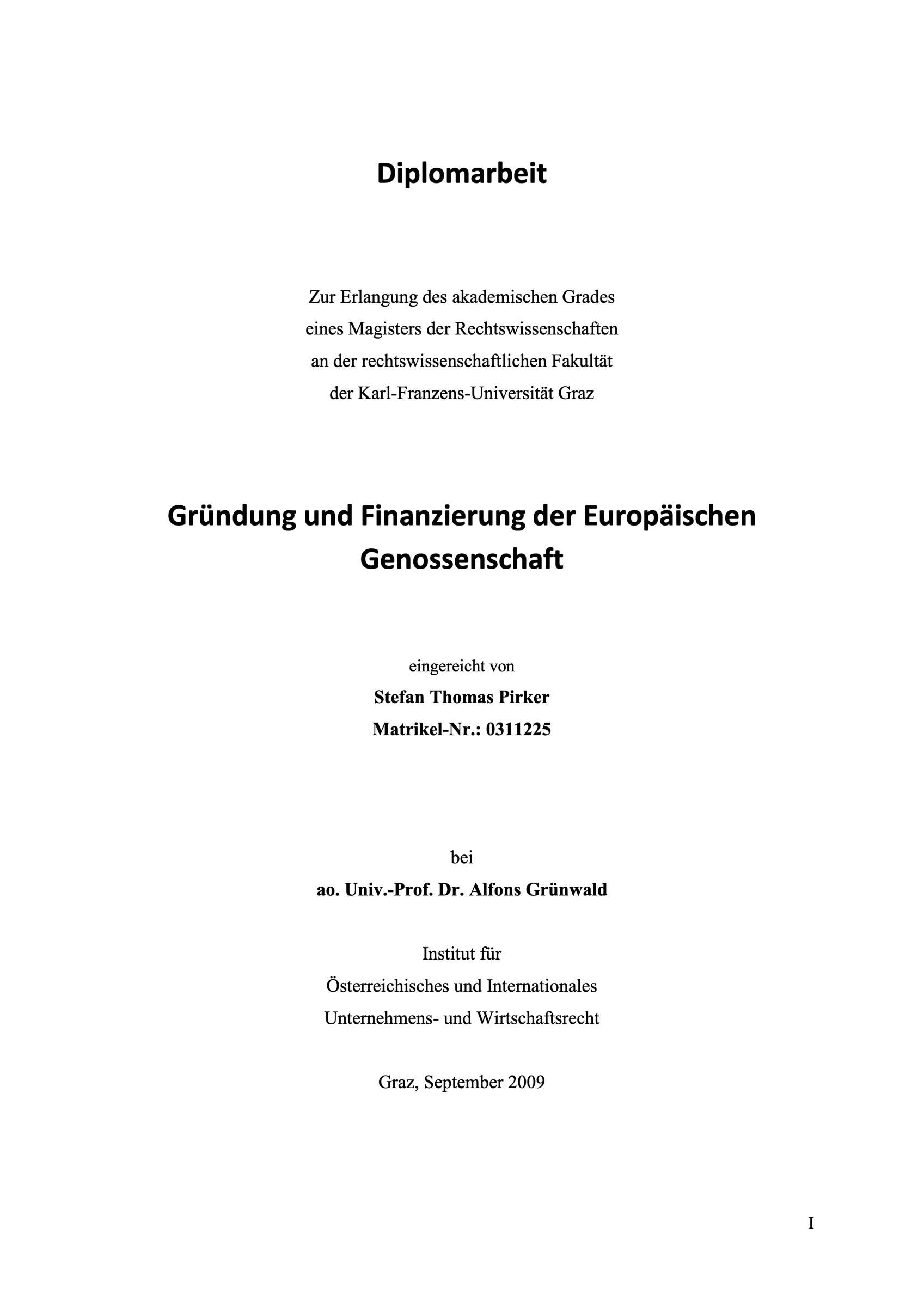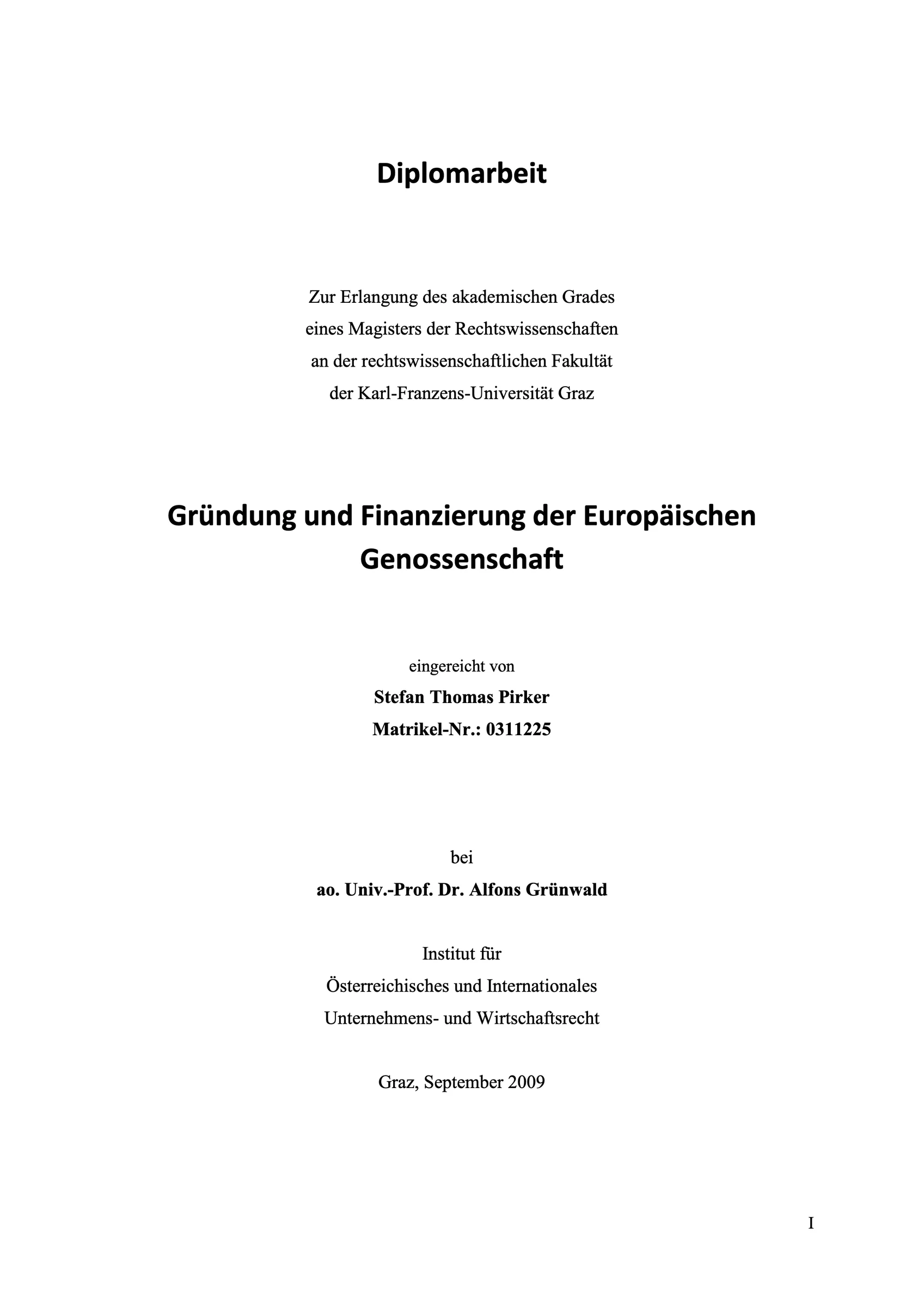AI-Generated Summary
Context and Purpose
The document, titled "Formation and Financing of the European Cooperative Society (SCE)," was authored by Stefan Thomas Pirker and published by Universität Graz. It serves as a master’s thesis aimed at elucidating the establishment and funding mechanisms of the European Cooperative Society, which is crucial for promoting collaboration across European nations.
Introduction to the SCE
The SCE is a legal framework for cooperatives that allows both individuals and legal entities to operate across EU member states. This framework supports cross-border operations and enhances economic cooperation while adhering to the principles of cooperative governance, which emphasize member benefits over profit maximization.
Key Features of the SCE
The SCE offers several advantages, including limited liability for its members, a variable capital structure, and democratic governance through the "one member, one vote" principle. This structure is designed to foster solidarity and mutual support among members, aligning with sustainable economic practices.
Formation Process
To establish an SCE, at least five founding members must be from different EU countries, ensuring a diverse membership that reflects a cross-border initiative. The SCE can be formed through new incorporation, merger, or transformation from existing national cooperatives, which aids in preserving local cooperative traditions while expanding their reach.
Financial Aspects
The SCE requires a minimum capital of €30,000, which can be raised through member contributions. This capital serves as a foundation for the cooperative's financial stability and sustainability, allowing it to pursue social and economic objectives efficiently.
Legal Compliance and Governance
The SCE operates under EU regulations while also adhering to national laws of the member states where it is established. This dual compliance ensures that the cooperative is recognized legally across borders, providing a stable operational framework.
Mergers and Transformations
The SCE framework facilitates mergers between existing cooperatives, allowing them to consolidate resources and enhance their operational capacity. This is particularly relevant for cooperatives aiming to achieve greater market presence and sustainability.
Sustainable Impact
The SCE's focus on member welfare and community benefits aligns with sustainable housing initiatives. By supporting local economies and fostering cooperative ventures, the SCE promotes a model that can contribute to sustainable development goals across Europe.
Conclusion
The establishment of the SCE represents a significant advancement for cooperatives within the EU, allowing for enhanced cooperation and sustainability. By leveraging the strengths of member solidarity and shared resources, the SCE aims to make a meaningful impact on economic and social development across Europe.

